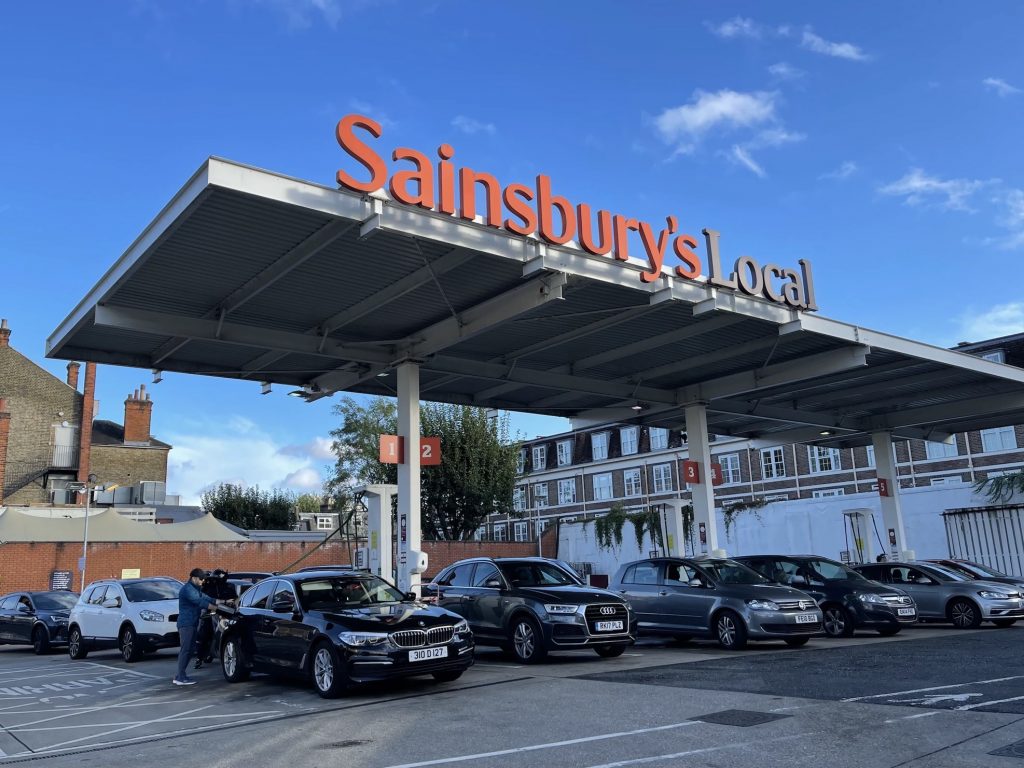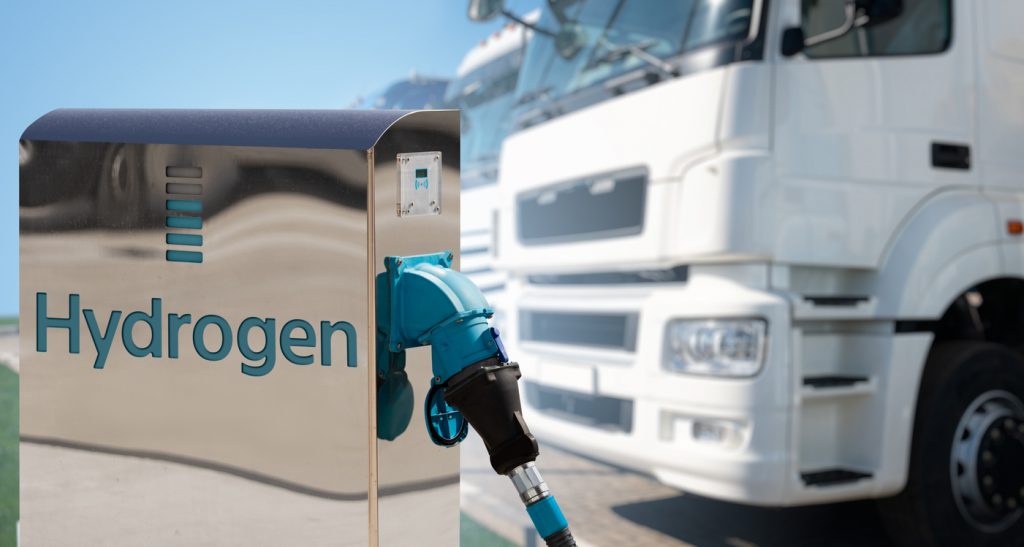If 2022 was notable for truck manufacturers announcing progress in their hydrogen strategies, 2023 already seems to have become the year that customers start trialling use of the clean fuel.
This week, UK supermarket Sainsbury’s said it had successfully completed a three-month trial of a hydrogen fuel-cell electric commercial vehicle manufactured by Electra, during which it saved 314 kg of carbon dioxide per day compared with an equivalent diesel truck.
The Electra eCargo Fuel Cell Electric Vehicle (FCEV) travelled about 208 miles a day from the supermarket’s depot in Sherburn-on-Elmet to Newcastle and back, using about 65% of its hydrogen capacity in the process.

UK supermarket Sainsbury’s said it had successfully completed a three-month trial of a hydrogen fuel-cell electric vehicle with commercial vehicle manufacturer Electra, during which it saved 314 kg of carbon dioxide per day compared with an equivalent diesel truck.
The trial was part of the government-funded Road to Hydrogen project which is exploring the establishment of a Multi-Model Transport Hydrogen Hub on Teesside. The hydrogen for the trial was supplied by Element 2.
Earlier in January, Immingham docks in North East Lincolnshire announced a trial that will see a hydrogen fuel cell truck haul shipping containers around the port in what is believed to be a UK first.
Last week, Air Liquide, Hyzon Motors and TALKE Group said it had completed a trial of a hydrogen fuel cell truck at the Port of Houston during which it carried out daily drayage operations hauling cargo loads within the port.

Hydrogen truck trials are laying the groundwork for hydrogen fleet and hydrogen infrastructure investments, meaning 2023 will be an important year for the technology and economics of clean hydrogen trucking hitting the open road.
More hydrogen truck trials are planned for later this year. In Brisbane, Australia, PepsiCo has teamed up withPure Hydrogen Corporation to trial a 160-kW hydrogen fuel cell truck at one of its delivery points in the area.
In North Rhine-Westphalia, Germany, waste management company Abfallentsorgungs-Gesellschaft Ruhrgebiet has converted a DAF CF 340 truck to hydrogen fuel cells as part of EU-funded HECTOR(Hydrogen Waste Collection Vehicles in North West Europe) project.

In Brisbane, Australia, PepsiCo has teamed up withPure Hydrogen Corporation to trial a 160-kW hydrogen fuel cell truck at one of its delivery points in the area.
The first trial under HECTOR took place last year in Aberdeen in which a Mercedes-Benz Econic refuse collection vehicle was fitted with a 250 kW Hyzon electric motor, an Allison 3000 Series transmission and a 45 kW fuel cell.
Many of these trials lay the groundwork for hydrogen fleet and infrastructure investments, meaning 2023 will be an important year for the technology and economics of clean hydrogen trucking hitting the open road.
Expect a lot more activity around ports as the maritime sector looks to decarbonise and coastal hydrogen hubs, such as Hynet, East Coast Cluster, Port of Shoreham and Hydrogen East, take shape as centres for clean hydrogen production, storage and distribution.
We may be in the depths of January, but 2023 is proving already bright for clean hydrogen.
To learn more about Ryze Hydrogen click here.






